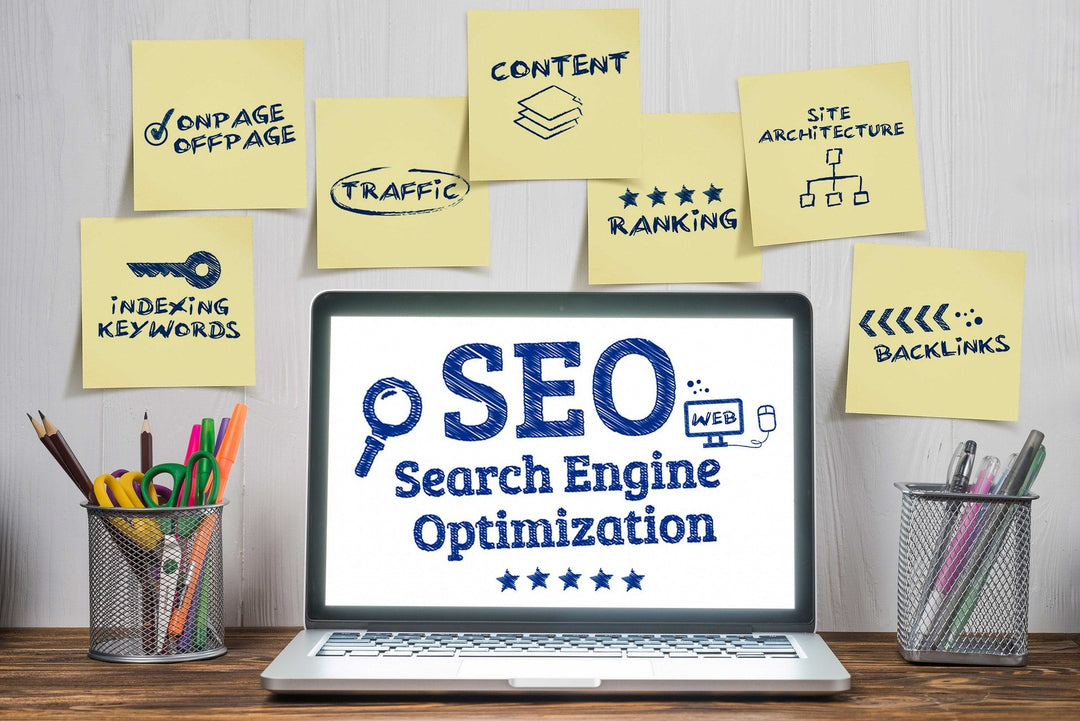10 Irresistible Website Speed and Performance Optimization Tips
With the rise of the internet, everyone is trying to get the most out of their website. Google ranks websites based on how fast they load. If yours don't load quickly enough and visitors leave, you're losing potential leads every day -- and that can actually hurt your business. So, having a fast and efficient website is essential for any business.
Your website is an essential part of your digital marketing strategy. It determines your success, whether by increasing conversions, increasing traffic, or reducing bounce rates. The faster your website loads, the better the user experience will be. It can help to improve rankings in search engines, increase engagement and loyalty from customers, and even boost sales.

Read More: PRACTICAL GUIDE TO WEBSITE OPTIMIZATION TOOLS: BENEFITS, TYPES AND TOP-SOUGHT TOOLS
Top Reasons Why Page Speed is An Important Element?
Slow loading websites can cost businesses dearly in terms of lost revenue and customers. In fact, page speed is now a ranking factor for search engines like Google. This means that if your website loads slowly, it could negatively impact your search engine rankings.
There are a number of reasons why page speed is important for business:
- First, slow-loading websites can frustrate visitors and cause them to leave without taking any desired action, such as making a purchase or signing up for a newsletter.
- Second, as we mentioned, page speed is now a ranking factor for search engines. This means that if your website loads slowly, it could hurt your search engine rankings and visibility.
- Third, fast-loading websites create a better user experience, which can lead to more engaged visitors and customers. Finally, page speed can impact your bottom line directly – slower websites can cost you money in terms of lost revenue and customers.
There are a number of ways to improve your website’s page speed, including optimizing images, using a content delivery network, and minifying CSS and JavaScript. Implementing even a few of these techniques can have a significant impact on your website’s speed and performance.
Recommended Reading: TOP 10 POST-PANDEMIC DIGITAL MARKETING STRATEGIES FOR SMES & LARGE BUSINESSES
Top 10 Tips to Optimize Your Website Page Speed
1. Minimize HTTP Requests
When it comes to website speed and performance optimization, minimizing HTTP requests is key. Every time a page loads, your browser makes a request to the server for the HTML document, all the images on the page, and any other files that are required. If you have too many requests, your page will load slowly.
There are several things you can do to reduce the number of requests your page makes:
- Use sprites to combine multiple images into one file
- Use a CSS sprite generator to create sprites automatically
- Optimize your images for web use
- Minimize the number of external scripts you use
- Use a content delivery network (CDN)
2. Use a Content Delivery Network
A content delivery network, or CDN, can help improve website speed and performance. CDNs use a network of servers to deliver content to users, which helps to reduce load time and improve performance. They work by caching content on regional servers, which means that the user is served the content from the nearest server, resulting in a faster load time.
There are a number of different CDN providers available, so you should be able to find one that meets your needs.

3. Optimize Images
When optimizing images, keep the following in mind:
- Use the correct file format: JPEG for photos, PNG for logos and graphics, and GIF for animated images.
- Reduce the file size: The smaller the file size, the faster the image will load.
- Optimize the image dimensions: Make sure the image is as small as possible while still retaining its quality.
- Use compression: Compress images using a tool such as Photoshop or TinyPNG.
4. Minify Resources
Minifying resources means shrinking the size of files without compromising their functionality. You can minify resources by compressing them with gzip or deflate, removing unnecessary white space and comments, and renaming variables to shorter names.
There are many tools and services available that can help you minify your resources, including YUI compressor, Google PageSpeed Insights, and the online compressor from HTML5 Boilerplate.
5. Put Stylesheets at the Top
You can improve your website's loading time by putting your stylesheets at the top of your document. This will allow the browser to start loading the stylesheets before it starts loading the rest of your content.
6. Put Scripts at the Bottom
Loading scripts in the of your page can delay page rendering, so it's best to put them at the bottom of your page. This will ensure that your page renders as quickly as possible.
7. Avoid Redirects
Redirects are often used to send users to a different page after they've clicked on a link. However, they can also slow down your website's loading time.
To avoid this, try to use redirects sparingly. Only use them when absolutely necessary, and make sure that the redirected page is as close as possible to the original page.
8. Reduce the Number of Plugins
Reducing the number of plugins is one of the best ways to speed up your website. Every plugin you add increases the load time of your pages. If you can reduce the number of plugins to the minimum required, you will see a significant improvement in performance.

9. Configure ETags
ETags are a mechanism that the server can use to determine whether the client has a cached version of the requested resource. ETags are generated by the server and include an identifier and a timestamp. The client caches the ETag, and if the ETag changes, the client can request the updated resource from the server.
You can configure your server to send ETags to the client. This will allow the client to cache resources more effectively.
10. Use a Good Web Host
A good web host is essential for optimizing website speed and performance. When you're looking for a web host, be sure to choose one that is reliable and has a good reputation.
It's also important to choose the right hosting plan. You don't want to choose a plan that is too small or too large for your website. Be sure to research the different hosting plans available and choose one that fits your needs.
Relevant Reading: 10 TIPS FOR BETTER OFF-PAGE SEO OPTIMIZATION
Start Optimizing Your Website Speed for Better Visits
Fast-loading websites are becoming more and more important as time goes on. It plays a major role in whether your visitors stick around, or bounce directly away to something more useful. The millions of people who visit your site each day all have access to high-speed connections, whether they're using their mobile device or desktop computer. So, to be able to peak during every search engine algorithm update, you must invest in web optimization strategies that make a difference. Our experts at eComIntegrate can help you achieve that without any hassles. To know more about new digital trends, Shopify migration and website optimization techniques, get in touch with us.
[nerdy-form:11564]





Leave a comment